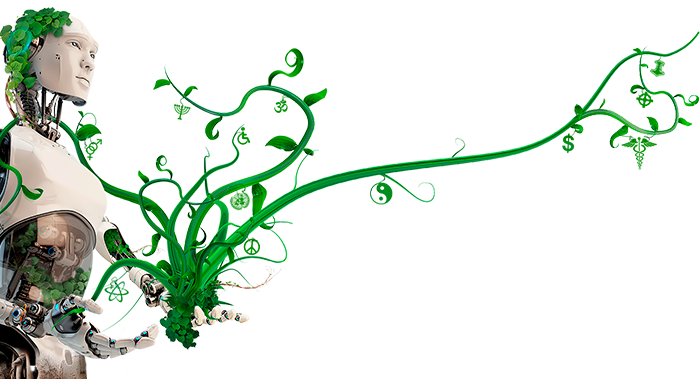live event based on live contributions

Aurélie Clodic is a Research Engineer in Robotics at LAAS CNRS (team IDEA), Toulouse, France. She received her PhD in robotics in 2007 for which she elaborated and implemented ingredients for human-robot joint activity in several contexts (robot guide in a museum (www.laas.fr/robots/rackham) and robotic assistant in the framework of the COGNIRON project (www.cogniron.org and www.laas.fr/robots/jido)). Her research interests include human-robot collaborative task achievement as well as robotics architecture design (focused on decision- making and supervision) dedicated to HRI. She is the principal investigator of "toward a Framework for Joint Action" workshop series (http://fja.sciencesconf.org).

Frank Dignum got his PhD at the VU in 1989. Since 2019 he is Wallenberg chair in AI at Umeå University in Sweden, has an affiliation to Utrecht University and he is an honorary principal research fellow of the University of Melbourne. Since 2014 he is a EurAI fellow.
Victor Fernandez Castro is a current post-doctoral research fellow at LAAS-CNRS (Université de Toulouse, CNRS) and the Institut Jean Nicod, (DEC, ENS, PSL Research University) under the project “ANR-16-CE33-0017: Joint Action for Human-Robot Interaction”. Previously, he obtained his Ph.D. at the University of Granada in 2017, where he was also a post-doctoral research fellow (2017-2018). He has also been research visitant at George Washington University and the University of Edinburgh. His main areas of interest are the philosophy of mind, psychology and social robotics. His research focuses on social cognition, joint action and metacognition.
Raul Hakli is a university researcher in practical philosophy at the University of Helsinki, Finland. His research interests include social ontology, collective intentionality and the philosophy of social robotics.
Social robotics is one of the most important emerging technologies, with potentially profound socio-cultural impact. However, the current interdisciplinary research areas of "social robotics" and "Human Robot Interaction" (HRI) are not yet equipped with the necessary conceptual tools in order to design interactions between humans and robots. New approaches for effective yet context-adequate social interactions are needed, that observe overarching ethical principles and taking larger socio-cultural perspectives into account. With this workshop, we aim to be able to clarify questions arising with this new technology. How far can robots go—now and in the future—to fulfill the requirements of full-blown social agents? How and where do ethical requirements dovetail with the elements (conditions, principles, and procedures) for social agency? This workshop will be part of the «toward a framework for Joint Action» series (fja.sciencesconf.org)
Helena Frijns is a Human-Robot Interaction researcher. She is currently working on her PhD on the design of interactions with social and collaborative robots at Vienna University of Technology. Her research interests include interaction design for Human-Robot Interaction, interaction and communication models, coordination and joint action between humans and robots, and cognitive robotics.
Oliver Schürer is researcher, curator, editor and author as well as Senior Scientist and Deputy head at the Department for Architecture Theory and Philosophy of Technics, Vienna University of Technology. He has given numerous international lectures, published on technology and media in architecture, and curated a variety of conferences and events. Since 2008 he does experimental theory by interlinking architecture, art, engineering and humanities with experimental developments. In 2014 he founded the transdisciplinary group H.A.U.S., researching “Humanoid robots in Architecture and Urban Spaces.” The group is conducting research in assistive systems as well as performance arts.
We discuss three different ways to approach the topics of context and context-awareness for social robotics. We distinguish between engineering approaches to developing context-awareness, social context as an object of study in human-centred design, and context as a cognitive component of interaction. We propose a definition of context for social robots and discuss design implications.

Frank Dignum got his PhD at the VU in 1989. Since 2019 he is Wallenberg chair in AI at Umeå University in Sweden, has an affiliation to Utrecht University and he is an honorary principal research fellow of the University of Melbourne. Since 2014 he is a EurAI fellow.
Social behavior is often seen as an extra behavior that is attached on top of the basic robot behavior. I argue that this approach is fundamentally flawed and will not work in any real social situation where robots interact with people in a dynamic environment and have to sustain some social relation over time.
Dane Leigh Gogoshin received her M.A. in philosophy and cognitive science at the University of Houston. She is currently a Ph.D. student in Practical Philosophy at the University of Helsinki where she is working on a critique of the moral responsibility system and studying ways in which we can become rational, autonomous, virtuous agents. She taught philosophy for several years at the Houston Community College and worked as a professional composer and musician before beginning her Ph.D.
Contrary to the prevailing view that robots cannot be full-blown members of the larger human moral community, I argue not only that they can but that they would be ideal moral agents in the way that currently counts. While it is true that robots fail to meet a number of criteria which some human agents meet or which all human agents could in theory meet, they earn a perfect score as far as the conception of behavioristic moral agency at work in our moral responsibility practices goes.

Dr. Hoffman is Associate Professor of Mechanical Engineering at Cornell University. Prior to that he was at co-director of the IDC Herzliya Media Innovation Lab. He heads the Human-Robot Collaboration and Companionship (HRC2) group, studying the algorithms, interaction schema, and designs enabling interactions between people and personal robots. www.guyhoffman.com
Social robots offer a promise of relatedness without the limitations of human ability and availability. Despite this promise, the idea of social robots fills many with unease, a phenomenon I call the Social Uncanniness of robotic companions. The reasons for this sense of unease could be attributed to the fact that social robots violate deeply rooted psychological needs, including our sense of being unique individuals that can not easily be replaced or replicated; our fear of dying and of disappearing; and a worry that by relating to robots we may lose our ability to relate appropriately to other humans.
Victor Fernandez Castro is a current post-doctoral research fellow at LAAS-CNRS (Université de Toulouse, CNRS) and the Institut Jean Nicod, (DEC, ENS, PSL Research University) under the project “ANR-16-CE33-0017: Joint Action for Human-Robot Interaction”. Previously, he obtained his Ph.D. at the University of Granada in 2017, where he was also a post-doctoral research fellow (2017-2018). He has also been research visitant at George Washington University and the University of Edinburgh. His main areas of interest are the philosophy of mind, psychology and social robotics. His research focuses on social cognition, joint action and metacognition.
Raul Hakli is a university researcher in practical philosophy at the University of Helsinki, Finland. His research interests include social ontology, collective intentionality and the philosophy of social robotics.

Aurélie Clodic is a Research Engineer in Robotics at LAAS CNRS (team IDEA), Toulouse, France. She received her PhD in robotics in 2007 for which she elaborated and implemented ingredients for human-robot joint activity in several contexts (robot guide in a museum (www.laas.fr/robots/rackham) and robotic assistant in the framework of the COGNIRON project (www.cogniron.org and www.laas.fr/robots/jido)). Her research interests include human-robot collaborative task achievement as well as robotics architecture design (focused on decision- making and supervision) dedicated to HRI. She is the principal investigator of "toward a Framework for Joint Action" workshop series (http://fja.sciencesconf.org).
The aim of this paper is to present a philosophically inspired list of minimal requirements for social agency that may serve as a guideline for social robotics. Such a list does not aim at detailing the cognitive processes behind sociality but at providing an implementation-free characterization of the capacities and skills associated with sociality. We employ the notion of intentional stance as a methodological ground to study intentional agency and extend it into a social stance that takes into account social features of behavior. We discuss the basic requirements of sociality and different ways to understand them, and suggest some potential benefits of understanding them in an instrumentalist way in the context of social robotics.
